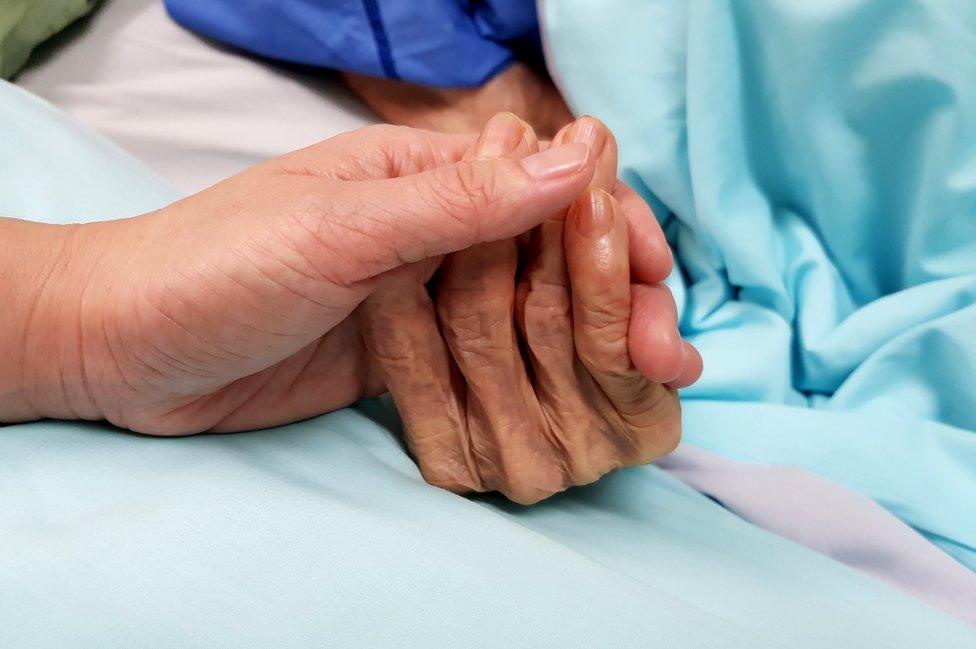Deaths in Scotland rise by 10% in last three months
- Published

The number of people who died in Scotland in the last three months is 10% higher normal for the time of year.
New National Records of Scotland (NRS) statistics, external found that during quarter three, July - September, the number of deaths was 10% above the average. There were 14,925 deaths during that period.
NRS said the number of deaths from cancer, heart disease, dementia and respiratory disease all increased.
But it said there was no one cause of the spike in deaths.
Compared with the quarter three average, there were 4,091 (1.5%) more cancer deaths, with 1,643 from coronary heart disease (up 8.2%).
Deaths from dementia and Alzheimer's disease increased by 3.6% to 1,414, and deaths from respiratory diseases increased by 3.1% to 1,350.
There were 890 deaths from cerebrovascular disease, an increase of 1.9%.
Covid-19 was the underlying cause of 397 people dying and there were no deaths where the underlying cause was adverse effects of a Covid-19 vaccine.
The increase on the average is slightly more than the previous quarter, where deaths were 9.7% above average, about 13,660.
More weddings, fewer births
There were some reductions though.
The number of stillbirths was down by 8.4% on the quarter three average, a total of 48 deaths, and the number of infant deaths fell by 21.3% to 34.
Julie Ramsay, the vital events statistician at NRS. said: "There doesn't appear to be a single factor behind this increase and analysis of the causes of death show an increase across a wide range of illnesses and other causes."
Ms Ramsay outlined some statistics for other life events.
"The report also shows 10,658 couples married in Scotland, nearly 2% more than in this period last year," she said.
She added that there were 11,692 births, down more than 12% on the five-year average for July to September.
This continues the period of negative natural change, where the number of deaths outnumbers the number of births, which began in quarter one of 2015.
There were also 185 civil partnerships, 156 of which were for mixed sex couples who have been able to choose this option since June last year.
There were 29 same-sex civil partnerships, an increase of six on the five-year average.